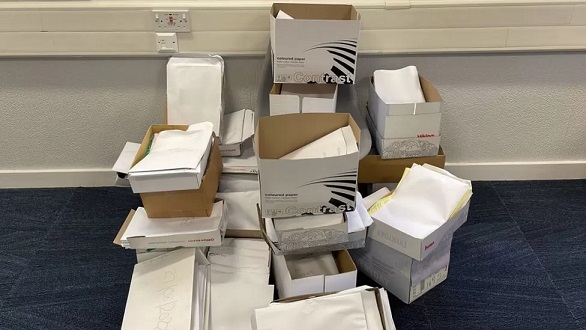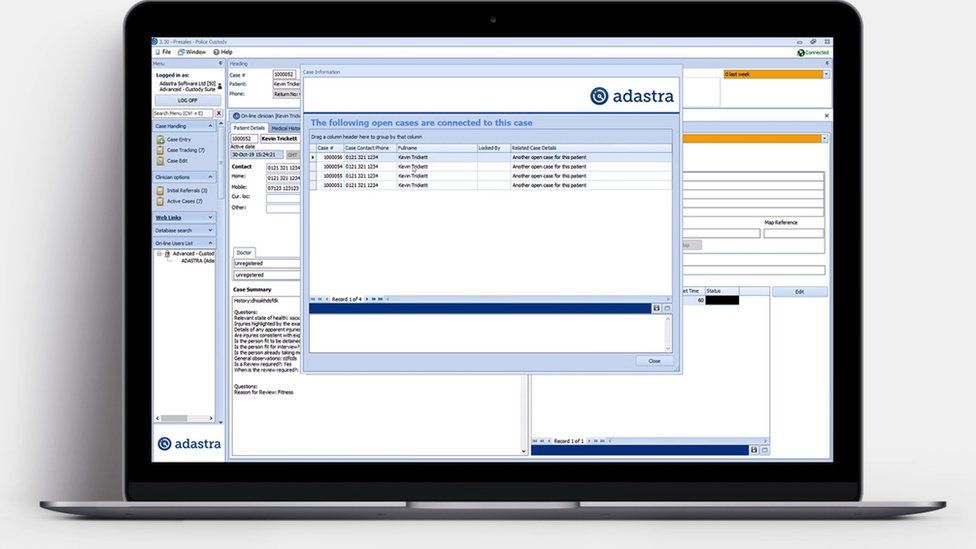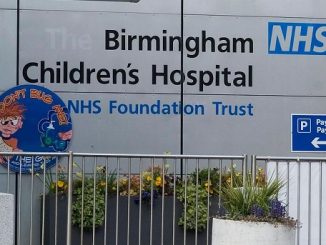
Doctors say it could take months to process mounting piles of medical paperwork caused by a continuing cyber-attack on an NHS supplier.
One out-of-hours GP says patient care is being badly affected as staff enter a fourth week of taking care notes with pen and paper.
The ransomware attack against software and services provider Advanced was first spotted on 4 August.
The company says it may take another 12 weeks to get some services back online.
Criminal hackers took offline seven of Advanced’s health systems, including software used for patient check-ins, medical notes and the NHS 111 service.
Dr Fay Wilson, who manages an urgent-care centre in the West Midlands, says the main choke point for her team is with patient records.
She said it could affect patient care “because we can’t send notifications to GP practices, except by methods that don’t work because they require a lot of manual handling, and we haven’t got the staff to actually do the manual handling”.

Dr Wilson also said it was causing a backlog at night. “Three times in the last two weeks I have had to say we are now on ‘escalation’, which means we can’t do any home visits overnight and they will have to be delayed until the morning.”
Every in-person visit in her region was having to be recorded with pen and paper, she added.
Images of hand-written notes on different-coloured paper, depending on the day of the week, now have to be emailed from hospitals and surgeries, but Dr Wilson says staff are coping well and volunteering to work longer hours to help.
But she warns it could take six months to process and input a growing backlog of “probably a few hundred thousand” patient records once Adastra is up and running again.
The British Medical Association says other regions are likely to be facing similar difficulties but some areas are now returning to normal.
An NHS spokesperson said robust contingency plans were in place across local health systems and urged the public to continue to use the health service as normal.
“The use of electronic records is a small – but important – aspect of diagnosing and treating patients,” it said. “Advanced is working to resolve their software problems, and since Monday 22 August, NHS 111 service providers have been coming back online.”
Patients, though, have been describing how the cyber-attack is affecting care.
Jennie, a mother from Oxfordshire, says a doctor treating her teenage son for mental-health difficulties said during a consultation that she was not able to access any of his healthcare notes because of the hack.
“During the conversation it became clear the clinician I was talking to had no access to his notes,” she said.
“She could not see his details; she didn’t know what college he attends; she didn’t know my name or even our address. She told me about the problems with the Carenotes system, which she said has been down for several weeks.”
Professor Martin Marshall, chairman of the Royal College of GPs, says the lack of access to patient notes is “concerning and needs to be addressed as a matter of urgency”.
It’s not known which ransomware group attacked Advanced, and the company is not saying whether it is negotiating with the cyber-criminals.
Typically, hackers will issue a ransom demand in Bitcoin in exchange for recovery of IT systems.
While it is hard to trace where the gangs are based, recent analysis suggests that 74% of all money made through ransomware attacks in 2021 went to Russia-linked hackers.
Source: bbc.co.uk






Be the first to comment